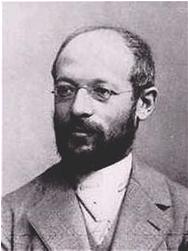
Social science is the branch of science devoted to the study of societies and the relationships among individuals within those societies. The term was formerly used to refer to the field of sociology, the original "science of society", established in the 19th century. In addition to sociology, it now encompasses a wide array of academic disciplines, including anthropology, archaeology, economics, human geography, linguistics, management science, political science, psychology, and history.

The following outline is provided as an overview of and topical guide to the discipline of sociology:
Social geography is the branch of human geography that is interested in the relationships between society and space, and is most closely related to social theory in general and sociology in particular, dealing with the relation of social phenomena and its spatial components. Though the term itself has a tradition of more than 100 years, there is no consensus on its explicit content. In 1968, Anne Buttimer noted that "[w]ith some notable exceptions, (...) social geography can be considered a field created and cultivated by a number of individual scholars rather than an academic tradition built up within particular schools". Since then, despite some calls for convergence centred on the structure and agency debate, its methodological, theoretical and topical diversity has spread even more, leading to numerous definitions of social geography and, therefore, contemporary scholars of the discipline identifying a great variety of different social geographies. However, as Benno Werlen remarked, these different perceptions are nothing else than different answers to the same two questions, which refer to the spatial constitution of society on the one hand, and to the spatial expression of social processes on the other.

Georg Simmel was a German sociologist, philosopher, and critic.

Ethnography is a branch of anthropology and the systematic study of individual cultures. Ethnography explores cultural phenomena from the point of view of the subject of the study. Ethnography is also a type of social research that involves examining the behaviour of the participants in a given social situation and understanding the group members' own interpretation of such behaviour.

Youth culture refers to the societal norms of children, adolescents, and young adults. Specifically, it comprises the processes and symbolic systems that are shared by the youth demographic and are distinct from those of adults in the community.

Ferdinand Tönnies was a German sociologist, economist, and philosopher. He was a significant contributor to sociological theory and field studies, best known for distinguishing between two types of social groups, Gemeinschaft and Gesellschaft. He co-founded the German Society for Sociology together with Max Weber and Georg Simmel and many other founders. He was president of the society from 1909 to 1933, after which he was ousted for having criticized the Nazis. Tönnies was regarded as the first proper German sociologist and published over 900 works, contributing to many areas of sociology and philosophy. Tönnies, Max Weber, and Georg Simmel are considered the founding fathers of classical German sociology. Though there has been a resurgence of interest in Weber and Simmel, Tönnies has not drawn as much attention.

Religious studies, also known as the study of religion, is an academic field devoted to research into religious beliefs, behaviors, and institutions. It describes, compares, interprets, and explains religion, emphasizing systematic, historically based, and cross-cultural perspectives.
The cultural turn is a movement beginning in the early 1970s among scholars in the humanities and social sciences to make culture the focus of contemporary debates; it also describes a shift in emphasis toward meaning and away from a positivist epistemology. The cultural turn is described in 2005 by Lynette Spillman and Mark D. Jacobs as "one of the most influential trends in the humanities and social sciences in the last generation." A prominent historiographer argues that the cultural turn involved a "wide array of new theoretical impulses coming from fields formerly peripheral to the social sciences," especially post-structuralism, cultural studies, literary criticism, and various forms of linguistic analysis, which emphasized "the causal and socially constitutive role of cultural processes and systems of signification."
Sociocybernetics is an independent chapter of science in sociology based upon the general systems theory and cybernetics.

Rosa Mayreder was an Austrian freethinker, author, painter, musician and feminist. She was the daughter of Marie and Franz Arnold Obermayer who was a wealthy restaurant operator and barkeeper.

The sociology of culture, and the related cultural sociology, concerns the systematic analysis of culture, usually understood as the ensemble of symbolic codes used by a member of a society, as it is manifested in the society. For Georg Simmel, culture referred to "the cultivation of individuals through the agency of external forms which have been objectified in the course of history". Culture in the sociological field is analyzed as the ways of thinking and describing, acting, and the material objects that together shape a group of people's way of life.

The sociology of law is often described as a sub-discipline of sociology or an interdisciplinary approach within legal studies. Some see sociology of law as belonging "necessarily" to the field of sociology, but others tend to consider it a field of research caught up between the disciplines of law and sociology. Still others regard it neither a subdiscipline of sociology nor a branch of legal studies but as a field of research on its own right within the broader social science tradition. Accordingly, it may be described without reference to mainstream sociology as "the systematic, theoretically grounded, empirical study of law as a set of social practices or as an aspect or field of social experience". It has been seen as treating law and justice as fundamental institutions of the basic structure of society mediating "between political and economic interests, between culture and the normative order of society, establishing and maintaining interdependence, and constituting themselves as sources of consensus, coercion and social control".

Field research, field studies, or fieldwork is the collection of raw data outside a laboratory, library, or workplace setting. The approaches and methods used in field research vary across disciplines. For example, biologists who conduct field research may simply observe animals interacting with their environments, whereas social scientists conducting field research may interview or observe people in their natural environments to learn their languages, folklore, and social structures.

The sociology of education is the study of how public institutions and individual experiences affect education and its outcomes. It is mostly concerned with the public schooling systems of modern industrial societies, including the expansion of higher, further, adult, and continuing education.

Historical Sociology is an interdisciplinary field of research that combines sociological and historical perspectives/ methods to understand the past, how societies have developed over time, and the impact this has on the present. Emphasising the need for a mutual line of inquiry of the past and present to understand how discrete historical events fit into wider societal progress and ongoing dilemmas through complementary comparative analysis.
The social sciences are the sciences concerned with societies, human behaviour, and social relationships.
The following outline is provided as an overview of and topical guide to society:
Julia Potter Adams is an American sociologist who works in the area of comparative and historical sociology. Julia Adams is a professor of Sociology. She conducts research in the areas of state building, gender and family, social theory and knowledge, early modern European politics, and Colonialism and empire. Her current research focuses on the historical sociology of agency relations and modernity, gender, race, and the representation of academic knowledge on Wikipedia and on other digital platforms. Adams is Professor of Sociology and International & Area Studies and Head of Grace Hopper College, Yale. She also co-directs YaleCHESS and is on the Board of Reed College.
Hans Dirk de Vries Reilingh was a Dutch geographer and professor.






